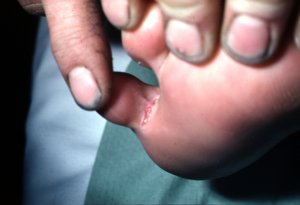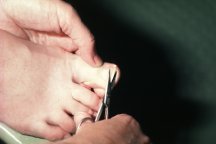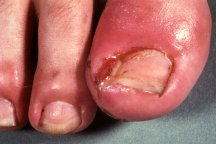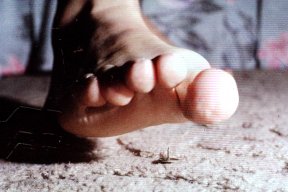
Patients should be encouraged to wash their feet every day in warm but not hot water, and dry carefully between the toes. Many problems are caused by poor hygiene. Tinea Pedis can cause splits in the skin between the toes as you can see in the picture. (The fingernails belong to the patient - not the clinician!)
Diabetics tend to get dry skin on their feet and legs, especially in the winter and the use of an emollient cream daily will help prevent cracks, especially around the heels. Emollient should not be used between the toes as this area is often too moist in the first place. Many podiatrists advocate the creams containing 25% Urea formulation. They are usually called Heel balm creams by the producers.


The irritation of the in-growing nail generates hypergranulation tissue, which then becomes infected. In severe cases the only option is to remove part of the nail under local anaesthetic.

Diabetics should inspect their feet daily and if they cannot reach their feet they can use a hand mirror to make sure the feet are all right.


